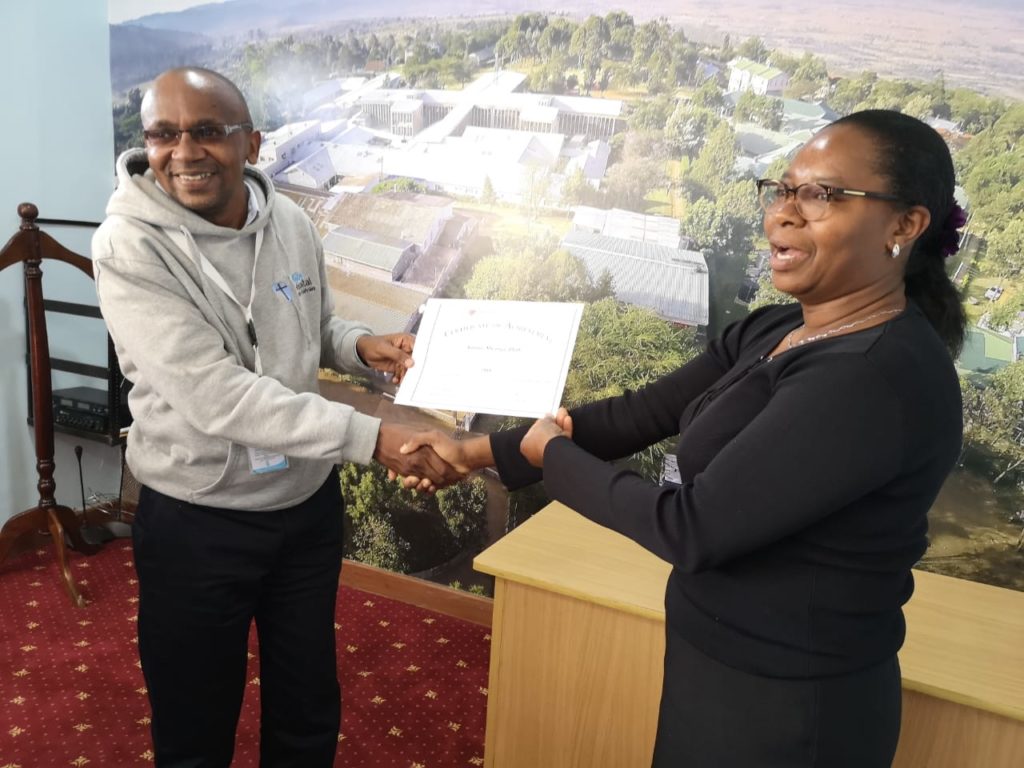Published: 09/01/2019

In 2019, the 6-month training was offered by Stanford to clinical teams representing 3 different clinical institutions near Nairobi. Team mentors included physicians and administrators from Stanford only. The Kenyan teams represented many different healthcare system issues including inpatient bed capacity, cancer care patient education, equipment maintenance and updating, and pediatric patient safety reporting. Projects were measures-driven and used run/control charts to demonstrate improvement. One project is shown here. This team increased the consistency of adequate patient education regarding cancer diagnoses from 50% to 90% at their institution.

Upon completion, a graduation ceremony was held at one of the hospitals, sponsored by the local hospital leaders. A survey was distributed following the cohort to measure increase in knowledge and capability. Participants demonstrated a higher level of knowledge and confidence in applying improvement science to their settings. 30% of learners (6 out of 21) moved from an average of 1.6 to 5.0 on a knowledge self-assessment, indicating they now feel comfortable teaching others improvement concepts and coaching them in their use. Currently only one cohort has been completed, with interest to move forward with other neighboring institutions.

A participant in Kenya stated after completing the collaborative: “I learnt the science of quality improvement. My most critical learning point was how to look at multiple interventions, test them, fail early and try others. Previously, I would have picked 1 intervention and gotten very frustrated if it was not working.” Another participant commented, “Thanking God for the opening for this collaborative to Kijabe hospital and being part of it. This work has brought great improvement that which no one could have counted on.”
